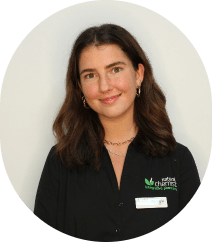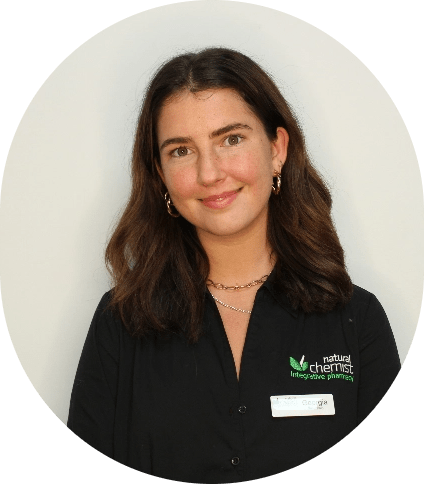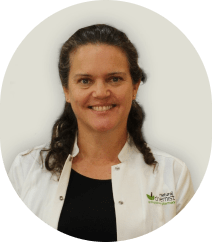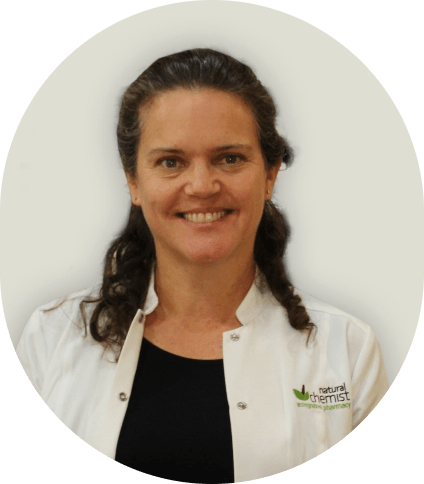PCOS: Polycystic Ovarian Syndrome
“I have been diagnosed with PCOS – now what?” Many women feel lost and confused about what a PCOS diagnosis means for their reproductive function.
Natural Clinic PCOS Consult: $75
Book your appointment with a qualified practitioner who will…
Work with you to determine which type of PCOS applies to you
Empower you with education around your menstrual cycle and your hormones
Reveal hormone and metabolic imbalances driving your PCOS
Provide expert dietary and lifestyle coaching to manage your symptoms
Give you access to practitioner-grade nutritional and herbal medicine to restore balance to your reproductive function
Book here to take control of your PCOS.
Book AppointmentTo learn more about the condition and kickstart your PCOS journey, read on for our Natural Clinic Clinical Guide to PCOS.
First and foremost, two key pieces of information to note
PCOS cannot be diagnosed by an ultrasound alone
You can have polycystic ovaries without having PCOS.
PCOS should only be diagnosed when at least two of the following three criteria are met:
Hyperandrogenism is shown by:
- Blood pathology
- Excess facial/ body hair growth
- Scalp hair loss
- Acne
Meaning:
- More than 20 follicles (partly developed eggs) are visible on one or both ovaries
- The size of one of both ovaries is increased (more than 10ml).

Book here for a practitioner to review your blood tests and ultrasound imagery to assess your PCOS diagnosis.
Book AppointmentNatural Clinic Clinical Guide to PCOS

WHAT IS IT?
Polycystic Ovarian Syndrome (PCOS) is the most common endocrine disorder in women of reproductive age, typically presenting as ovarian dysfunction, irregular periods, absent or irregular ovulation, and hyperandrogenism (excess androgens – male hormones).
Essentially then, being a syndrome, PCOS is a group of symptoms driven by hyperandrogenism. These symptoms can have detrimental effects on mental, social and emotional health.
Before we proceed to go down therapeutic avenues, it is important to understand that there are different types of PCOS associated with the various body systems at play:
- Post-pill PCOS
- Inflammatory PCOS
- Adrenal PCOS
- Insulin-resistant PCOS
Treatment should always be specific to what factors are driving your PCOS. For more information on how PCOS may be presenting for you click on the blog post below.

Is it Really PCOS?
Read moreIf you have been told that your PCOS means you are infertile, or that there is no cure, we are here to help you!
PCOS can affect fertility due to its effects on ovulation, however it does not mean you are infertile. Sub-fertility is the word we like to use as we see many successful pregnancies occur in women with PCOS if they are well supported.
The good news is that PCOS can be extremely well-managed with the correct supplementation, as well as ongoing dietary, lifestyle and environmental support.
CAUSES & TRIGGERS OF PCOS
- Birth control (progestins) with a high androgen index
- Chronic inflammation
- Adrenal fatigue + dysfunction
- High insulin + insulin resistance
- Elevated prolactin
- Elevated estrogen
- IBS + SIBO
- Nutrient deficiencies

How your diet plays a role
Following a diet that reduces inflammation and promotes healthy insulin will be the largest & long-standing therapeutic solution for managing your PCOS. These are our key recommendations for reducing your PCOS symptoms through the food on your plate:

Avoid inflammatory vegetable oils
- Corn
- Safflower
- Vegetable
- Sunflower; and
- Soy oils are ones to steer clear of.

Maximising polyphenol- rich foods
Maximising your intake of polyphenol-rich fruits and vegetables to reduce inflammation and promote gut health: dark leafy greens, berries, citrus, cacao, orange and red vegetables.

Avoid high glycemic foods
Avoiding high glycemic foods that will spike your sugar & insulin levels: white, processed carbohydrates (white bread, white pasta, white rice, bleached flours).

Increase healthy fats
Increasing healthy fats on your plate: extra-virgin olive oil, ghee, avocados, walnuts, macadamias, wild-caught fish.

Pharmaceutical and conventional treatments for PCOS
- Combination oral contraceptive pills to induce regular withdrawal bleeds, and reduce hyperandrogenism (depending on the type).
- Metformin for blood sugar regulation and increasing insulin sensitivity.
- Spironolactone to reduce hirsutism.
Natural treatments to manage your PCOS
To assist in glucose metabolism, support skin healing, reduce breakouts, & support healthy stress response.
To increase insulin sensitivity, improve ovulation rates, reduce androgens, and nourish ovarian cells and function.
To reduce sugar cravings, improve symptoms of acne & excessive hair growth, decrease inflammation, and correct deficiencies. *** Magnesium deficiency is associated with PCOS.
To reduce androgens, improve lipid and glucose levels, improve skin & hair health, increase clearance of excess estrogen and testosterone via the liver.
As a potent antioxidant to increase ovulation and pregnancy rates, decrease androgens, improve insulin & lipid profiles, and stimulate detoxification of excess hormones.
Herbal formula to balance reproductive hormones, support adrenal function, regulate ovulation and menstrual cycles. This is particularly indicated when coming off birth control.











